‘Roma Networks’ helps build healthy regional partnerships to respond to challenges such as children education, East-West migrations, and the holistic training of young Christian leaders.
![Representatives from 31 countries gathered in the last Roma Networks European conference, in Sarajevo (2019). / Photo: [link]The Good Story (TGS)[/link] via romanetworks.org](https://cms.evangelicalfocus.com/upload/imagenes/5fd8df665e2af_tgs_roma-conference_20191919-8940.jpg) Representatives from 31 countries gathered in the last Roma Networks European conference, in Sarajevo (2019). / Photo: [link]The Good Story (TGS)[/link] via romanetworks.org
Representatives from 31 countries gathered in the last Roma Networks European conference, in Sarajevo (2019). / Photo: [link]The Good Story (TGS)[/link] via romanetworks.org
A renewed awareness about the mission opportunities among the Roma people is bringing together Christian initiatives in Europe.
A clear example of this trend is the 3rd continental conference of the Roma Networks in Sarajevo (Bosnia and Herzegovina), which brought together over 220 people from 31 countries in 2019.
One of the aims of this gathering of “Roma and non-Roma people” was to establish the basis for “healthy partnerships” between all actors in this mission field.
Nina Jankucic, a church planter in Croatia, chairs the board of the Roma Networks. She spoke to Evangelical Focus about the exciting opportunities appearing across the continent.
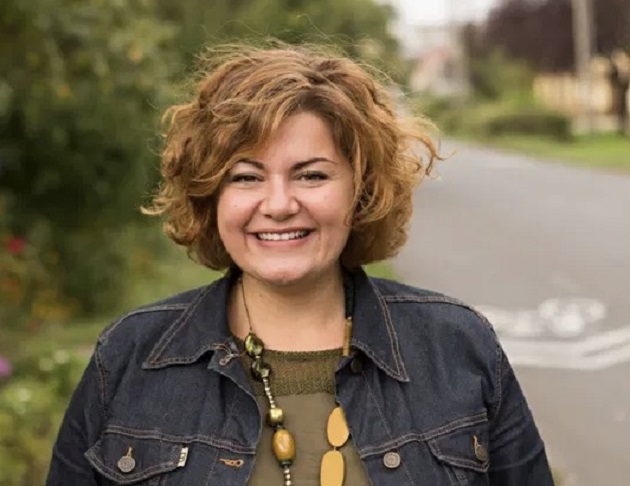
[photo_footer] Nina Jankucic, chair of the Roma Networks. [/photo_footer]
A process of travelling most of Europe’s countries, going “from city to city” to meet the ministries and church initiatives, was also crucial in the beginnings. “It was a time of research which helped us to understand that no one can do this on their own”.
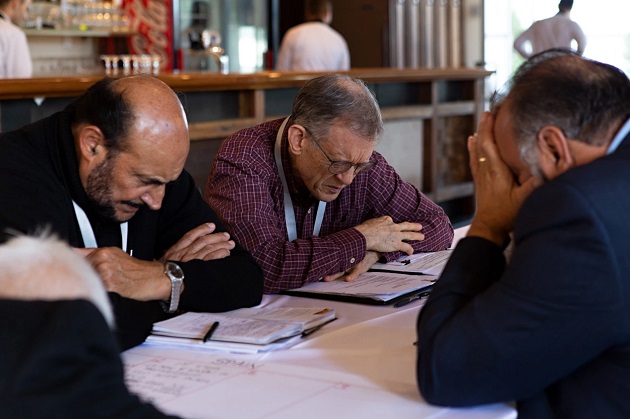
[photo_footer] Times of prayer during the Roma Networks conference in Sarajevo, 2019. / Photo: TGS via Romanetworks.com [/photo_footer]
A second conference in 2016 in Hungary gathered 180 participants to share a vision of close cooperation and offer practical tools for ministry. “The conference allowed opportunities for country meetings in order to discuss visions, opportunities, and needs of a particular region or country”.
The more Nina and other Roma Movements leaders were praying and thinking about the growth of the gospel among the Roma people, “the more God was putting on our heart to set the atmosphere of how healthy mission partnerships should look like
There are very real issues that are not adequately addressed such as: how to achieve equality among partners in the mission, how to avoid that money and budgets distort relationships, and how to avoid cultural misunderstandings.
“Now that we are in a time when many speak about unreached people, the Roma are becoming a 'more popular' mission field, so to say, we wanted people to think about what has happened until now and what they want for the future of the ministry”.
The Sarajevo conference set a table for regional groups to work on a 2-year plan with clear action steps.
In a context with less travel opportunities, new forms of cooperation are developing. Going to an international gathering “would cost us a ton of money, and many would not be able to meet”, Jankucic explains. “But as we were pushed to have Zoom meetings, we realised that this way of connecting is working great!”.
After the summer of 2020, country representatives coming together in regional meetings started to build strategies to respond to four key perceived challenges.
One is job creation and the flow of Roma people migrating from Eastern Europe to Western parts of the continent. Many of those people in a desperate situation fall into begging schemes or other forms of exploitation. Specific workshops are being prepared for those in Roma communities who do not have a formal job and those who have lost it due to the Covid-19 crisis.
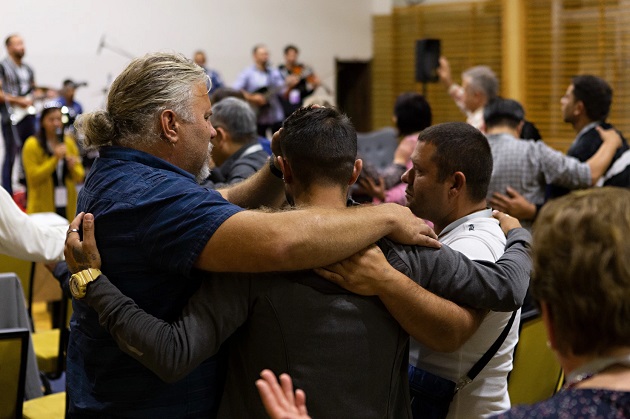
[photo_footer] One fo the aims of the networks in Europe is to develope heatlhy partnerships. / Photo: TGS via Romanetworks.com [/photo_footer]
The high rates of dropout in Primary School is another huge issue that the Roma Networks hopes to tackle better. “Some of our partners are looking to open Roma kindergarten, while others support parents that are often illiterate to make sure their children continue in school”, Jankucic explains.
Another exciting project is a Roma travelling Bible school for 6 countries in the Balkans, all of which share a similar language. “It is said that Roma people often don't have theological college”, so the aim is to “integrate this Bible training into the Roma lifestyle”, focusing on specific issues that are characteristic of their communities. Theology students would “meet in hubs near where they are” to make their progress easier.
From a church planting perspective, a “huge priority” that was mentioned frequently in last year’s conference is the “discipleship of the next generation: how to train and mentor young Roma Christians so that they become the next leaders”.
Nina and her husband are members of a church plant among Roma people in Croatia, and they have seen how difficult it is for new believers to have a real impact. “In such closed communities, if new believers are not well connected to an existing church, it is very easy to 'fall back'”.
Only after a “huge process” can one start to see profound effects of the gospel in action. Those who converted to Jesus Christ will face a “very high pressure” to conform to the values and lifestyle of the community around them.
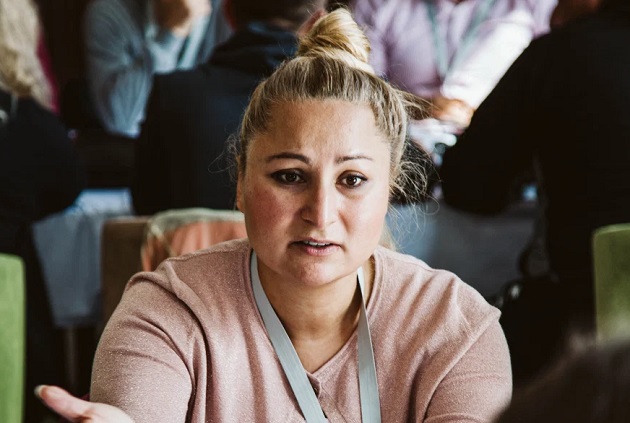
[photo_footer] The present needs in each of the countries are discussed in the meetings. / TGS via Romanetworks.com [/photo_footer]
“Leaders are often discouraged as they become aware of this slow process”. It is not until a second generation of believers that new churches start to thrive.
The experience of such successful churches in Eastern Europe speaks of almost three decades before Roma Christians are able to see visible fruit in their direct environment.
But the wait is worth it. “Now families in these places have at least 1 or 2 members who attend a Roma church. There are less crimes, children are finishing high school, some are even going to college”. These clear changes are noticed by the political authorities as they start to “connect with these Roma churches to partner in social projects”.
Nina also points to what the French missionary movement among Roma People, ‘Vie et Lumière’ (Light and Life) experienced. Its founder, Clément Le Cossec, witnessed a revival that spread throughout Europe and other parts of the world in the 50s. A key of his work was to invest in trust relationships, training Roma leaders who would themselves become missionaries to their own culture and language.
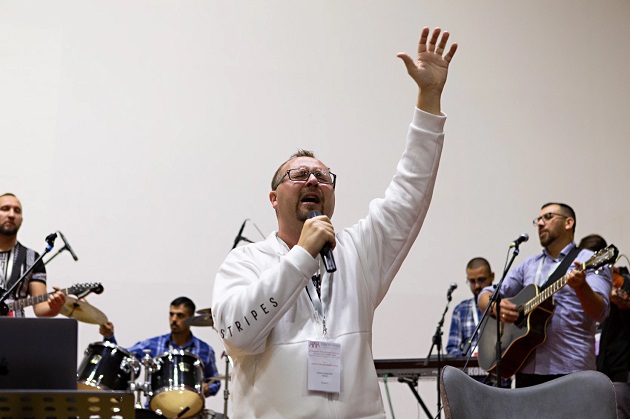
[photo_footer] Worship and music play an important role in the Roma Networks gatherings. / TGS via Romanetworks.com [/photo_footer]
The Roma Networks aims to help leaders to have this holistic mindset of mission.
Every Roma church should understand that its mission includes caring about the children in the community, helping young adults find jobs, support those who need to sort out their legal situation. “If a church leader thinks: ‘I am just going to share the gospel, that is the only thing I’m doing’… It is really hard he or she will have an impact”, says Jankucic.
“It is when the gospel takes over everything that people realise that there is not a division between their ‘Christian life’ and the ‘life outside of the church’”, she concludes.

Las opiniones vertidas por nuestros colaboradores se realizan a nivel personal, pudiendo coincidir o no con la postura de la dirección de Protestante Digital.
Si quieres comentar o